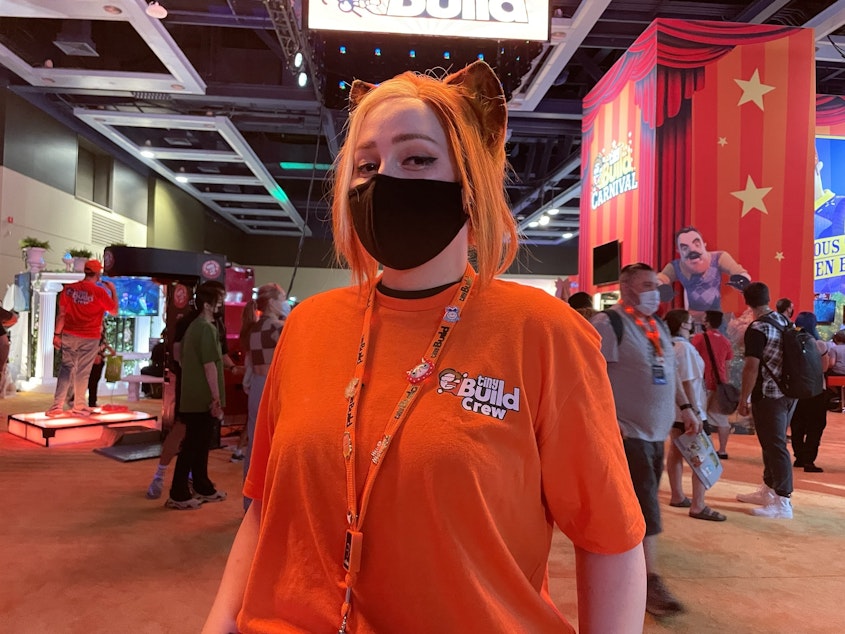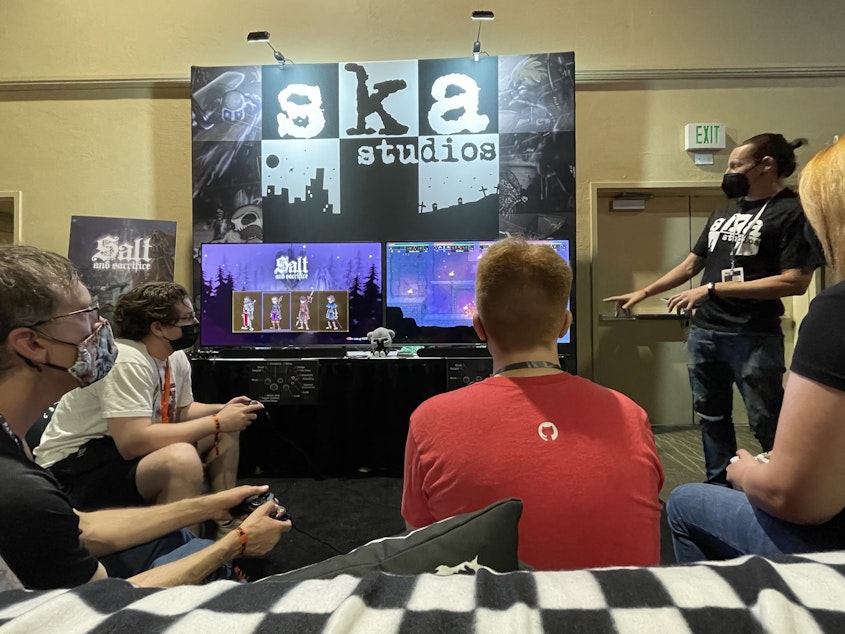What effect is 'remote work' having on the local video game industry?

KUOW's Joshua McNichols went to PAX West earlier in September with his son who is eyeing a career in video game development.
While he was there, they talked to developers about how the shift to working from home during the pandemic created an incredible difference in the way games are made.
Ari Spandl works for tinyBuild. It's a local video game company with just over 60 games in their portfolio, including the "Hello, Neighbor" series and "Totally Reliable Delivery Service." In 2019, Spandl left their career in insurance to pursue a dream of making video games.
"I finally just got tired of, I guess being unhappy," Spandl said. "I'm just gonna do it. I'm just gonna try to make it work."
So Spandl started with an office job and started making their way to their current position of "community manager" for tinyBuild in Bellevue. However, when the pandemic hit in 2020 and employees were sent home to work, things changed.
tinyBuild reduced its dependence on their Bellevue office, and started hiring more people in other places. Now it has a main office in the Netherlands, along with a development studio in Latvia. Spandl said in their meetings, participants see people from across the country and around the world.
Spandl said that a core group of Bellevue employees are still around, too.
"We're just a little bit more spread out than we were, which isn't really a bad thing," Spandl explained. "That means that maybe you could get an apartment that suits your needs a bit better, or maybe, possibly, you know, start looking for a house."

James Silva runs a video game company out of his home in Mill Creek, north of Seattle called SKA Studios. Lynch said he may move to Japan for awhile, but Silva said he has no plans to leave the area.
"It's amazing how much of a difference really good neighbors make," Silva said. "They're feeding my cat this week, she's old and grouchy. And she has love right now. That makes all the difference in the world. Right?"
So for some, working from home works out just fine. However, for other game companies, the collaboration of being in person is too much to give up.
Soundside host Libby Denkmann talked to Derrick Morton, CEO of FlowPlay. The company's headquarters is in downtown Seattle, and Morton says that for FlowPlay workers, a hybrid model has been the way to go.
"We were Monday, Wednesday, Friday, with home on Tuesday, Thursday before COVID," Morton explained. "Fully remote is something that's not going to work for us, and I don't think really works the best for most game companies. But hybrid, I think is going to be where we're going to be long term."
For Morton, it's all about the cooperative brainstorming that makes games better, and that works best in person.
"That's hard to do over a zoom call," he said. "It's much much easier if you're around a table or in a room."
Washington state is the second biggest producer of video games in the United States, surpassed only by California, according to the Entertainment Software Association.
So will the Pacific Northwest remain a center for video game creation? Morton said, yes.
"There's no question there will remain a hub," he explained. "I think we'll always be a hub and probably keep our number two status for the foreseeable future."
Music in this segment is from Kevin MacLeod (incompetech.com) and used under the Creative Commons 3.0 license.
You can listen to both interviews in the audio above.







